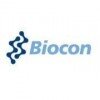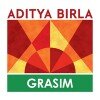
i
MSN Laboratories
Filter interviews by
MSN Laboratories Process Engineer Interview Questions and Answers
MSN Laboratories Process Engineer Interview Experiences
1 interview found
I applied via Walk-in and was interviewed before Jun 2023. There was 1 interview round.
(1 Question)
- Q1. 1. Filtration rate calculation 2. Distillation time calculation 3. Case studies
Top trending discussions






Interview questions from similar companies

I applied via Naukri.com and was interviewed in Jun 2024. There was 1 interview round.
(9 Questions)
- Q1. What is tip speed, and how do you calculate it from the laboratory to the pilot plant?
- Ans.
Tip speed is the speed at the outer edge of a rotating object, calculated by multiplying the radius by the angular velocity.
Tip speed is the speed at the outer edge of a rotating object.
It is calculated by multiplying the radius of the object by the angular velocity.
In the laboratory, tip speed can be calculated using the formula: Tip Speed = 2 * π * Radius * RPM.
In the pilot plant, the same formula can be used to calc...
- Q2. What are heat transfer and mass transfer, and what is their significance?
- Ans.
Heat transfer is the movement of heat from one place to another, while mass transfer is the movement of mass from one place to another. Both are important in various engineering processes.
Heat transfer involves conduction, convection, and radiation.
Mass transfer involves diffusion, convection, and molecular diffusion.
Significance of heat transfer includes maintaining temperature in chemical reactors, HVAC systems, etc.
...
- Q3. What actions have you taken in troubleshooting?
- Ans.
I have taken various actions in troubleshooting, including analyzing data, conducting experiments, and collaborating with team members.
Analyze data to identify potential issues
Conduct experiments to test hypotheses
Collaborate with team members to brainstorm solutions
Utilize problem-solving skills to troubleshoot complex problems
- Q4. What are Power Number and Flow Number?
- Ans.
Power Number and Flow Number are dimensionless numbers used in fluid mechanics to characterize the flow behavior of fluids in different systems.
Power Number is a dimensionless number used to characterize the power consumption in a mixing system. It is defined as the ratio of the power input to the fluid to the product of the impeller speed, impeller diameter, and fluid density.
Flow Number is a dimensionless number used...
- Q5. How do the P/V ratio and tip speed affect the selection of scale-up, and what criteria do you use for this selection?
- Ans.
P/V ratio and tip speed impact scale-up selection in process engineering.
P/V ratio affects the level of shear stress in the system, influencing mixing and reaction rates.
Higher tip speeds can lead to increased shear forces and heat generation, impacting product quality.
Selection criteria include desired mixing intensity, heat transfer requirements, and shear sensitivity of the product.
For example, in pharmaceutical man...
- Q6. What is HAZAOP, and what is the procedure for it?
- Ans.
HAZOP stands for Hazard and Operability Study, a systematic method to identify potential hazards and operability issues in a process.
HAZOP is a structured and systematic examination of a process to identify potential hazards and operability issues.
It involves a team of experts analyzing the process step by step to identify deviations from the design intent.
The team uses guide words such as 'no', 'more', 'less', 'as wel...
- Q7. What is your job role?
- Ans.
As a Process Engineer, my job role involves designing, implementing, and optimizing industrial processes to ensure efficiency and quality.
Designing and implementing processes to improve efficiency and quality
Optimizing existing processes to reduce costs and increase productivity
Troubleshooting issues and implementing solutions to improve process performance
Collaborating with cross-functional teams to ensure smooth oper...
- Q8. What calculations do you perform when transferring a new product from the lab to the plant?
- Ans.
Calculations include scale-up factors, equipment sizing, material compatibility, process optimization, and cost analysis.
Determine scale-up factors to ensure the lab process can be replicated in the plant
Size equipment appropriately for the larger scale production
Check material compatibility with plant equipment and process conditions
Optimize the process parameters for efficiency and quality
Conduct cost analysis to det
- Q9. How to calculate distillation rate?
- Ans.
Distillation rate can be calculated by dividing the amount of distillate collected by the time taken to collect it.
Calculate the amount of distillate collected in a given time period.
Divide the amount of distillate by the time taken to collect it to get the distillation rate.
Express the distillation rate in units such as liters per hour or gallons per minute.

I applied via Walk-in and was interviewed before Sep 2023. There was 1 interview round.
(5 Questions)
- Q1. Scale up technology
- Q2. Reaction kinetic
- Q3. Crystallisations and about PAT tool
- Q4. Heat and mass balance
- Q5. PFD and P&ID drawing along with BFD
Interview Preparation Tips


Just basic questions for first round, no second round
(1 Question)
- Q1. Aptitude test and other behavioral questions
Interview Preparation Tips

I applied via Naukri.com and was interviewed in Oct 2022. There were 3 interview rounds.

(1 Question)
- Q1. Basic chemical engineering
(1 Question)
- Q1. On the basis of written activity in CV
Interview Preparation Tips

I applied via Campus Placement and was interviewed before May 2021. There was 1 interview round.
(1 Question)
- Q1. Explain about chemical engineering thermodynamics
- Ans.
Chemical engineering thermodynamics is the study of energy and its transformations in chemical processes.
It involves the application of thermodynamic principles to chemical systems and processes.
It focuses on understanding and predicting the behavior of chemical reactions and the flow of energy in chemical systems.
It helps in designing and optimizing chemical processes for efficient energy utilization.
It includes topic...
Interview Preparation Tips

I applied via Job Fair and was interviewed in Sep 2022. There were 3 interview rounds.

About aptitude and core related such as mass heat and fluid operations
(2 Questions)
- Q1. Why you want to place in this job
- Ans.
I am interested in this job because it aligns with my skills and interests in process management.
I have a strong background in process management and have successfully implemented process improvements in my previous roles.
I am highly organized and detail-oriented, which are essential skills for a Process Associate.
I enjoy analyzing data and identifying areas for improvement in processes.
I am motivated by the opportunit...
- Q2. What are you future plans after hiring you
- Ans.
I plan to grow within the company and take on more responsibilities.
I aim to develop my skills and knowledge in the process associate role.
I would like to take on additional tasks and projects to contribute more to the team.
I hope to build strong relationships with colleagues and learn from their expertise.
I am open to opportunities for advancement and promotion within the company.
I will actively seek feedback and work...
Interview Preparation Tips

I applied via Referral and was interviewed before Jun 2022. There were 3 interview rounds.

30 Min test related to organic chemistry and Medicinal Chemistry.
(1 Question)
- Q1. Different Chemical reactions their Mechanism of action. NMR, Mass spectroscopy etc.
- Ans.
Chemical reactions involve the breaking and forming of chemical bonds to create new substances. NMR and mass spectroscopy are analytical techniques used to study these reactions.
Chemical reactions involve the breaking and forming of chemical bonds between atoms.
Nuclear Magnetic Resonance (NMR) spectroscopy is used to study the structure and dynamics of molecules by analyzing the magnetic properties of atomic nuclei.
Mas...

I applied via Naukri.com and was interviewed in Jun 2024. There was 1 interview round.
(9 Questions)
- Q1. What is tip speed, and how do you calculate it from the laboratory to the pilot plant?
- Ans.
Tip speed is the speed at the outer edge of a rotating object, calculated by multiplying the radius by the angular velocity.
Tip speed is the speed at the outer edge of a rotating object.
It is calculated by multiplying the radius of the object by the angular velocity.
In the laboratory, tip speed can be calculated using the formula: Tip Speed = 2 * π * Radius * RPM.
In the pilot plant, the same formula can be used to calc...
- Q2. What are heat transfer and mass transfer, and what is their significance?
- Ans.
Heat transfer is the movement of heat from one place to another, while mass transfer is the movement of mass from one place to another. Both are important in various engineering processes.
Heat transfer involves conduction, convection, and radiation.
Mass transfer involves diffusion, convection, and molecular diffusion.
Significance of heat transfer includes maintaining temperature in chemical reactors, HVAC systems, etc.
...
- Q3. What actions have you taken in troubleshooting?
- Ans.
I have taken various actions in troubleshooting, including analyzing data, conducting experiments, and collaborating with team members.
Analyze data to identify potential issues
Conduct experiments to test hypotheses
Collaborate with team members to brainstorm solutions
Utilize problem-solving skills to troubleshoot complex problems
- Q4. What are Power Number and Flow Number?
- Ans.
Power Number and Flow Number are dimensionless numbers used in fluid mechanics to characterize the flow behavior of fluids in different systems.
Power Number is a dimensionless number used to characterize the power consumption in a mixing system. It is defined as the ratio of the power input to the fluid to the product of the impeller speed, impeller diameter, and fluid density.
Flow Number is a dimensionless number used...
- Q5. How do the P/V ratio and tip speed affect the selection of scale-up, and what criteria do you use for this selection?
- Ans.
P/V ratio and tip speed impact scale-up selection in process engineering.
P/V ratio affects the level of shear stress in the system, influencing mixing and reaction rates.
Higher tip speeds can lead to increased shear forces and heat generation, impacting product quality.
Selection criteria include desired mixing intensity, heat transfer requirements, and shear sensitivity of the product.
For example, in pharmaceutical man...
- Q6. What is HAZAOP, and what is the procedure for it?
- Ans.
HAZOP stands for Hazard and Operability Study, a systematic method to identify potential hazards and operability issues in a process.
HAZOP is a structured and systematic examination of a process to identify potential hazards and operability issues.
It involves a team of experts analyzing the process step by step to identify deviations from the design intent.
The team uses guide words such as 'no', 'more', 'less', 'as wel...
- Q7. What is your job role?
- Ans.
As a Process Engineer, my job role involves designing, implementing, and optimizing industrial processes to ensure efficiency and quality.
Designing and implementing processes to improve efficiency and quality
Optimizing existing processes to reduce costs and increase productivity
Troubleshooting issues and implementing solutions to improve process performance
Collaborating with cross-functional teams to ensure smooth oper...
- Q8. What calculations do you perform when transferring a new product from the lab to the plant?
- Ans.
Calculations include scale-up factors, equipment sizing, material compatibility, process optimization, and cost analysis.
Determine scale-up factors to ensure the lab process can be replicated in the plant
Size equipment appropriately for the larger scale production
Check material compatibility with plant equipment and process conditions
Optimize the process parameters for efficiency and quality
Conduct cost analysis to det
- Q9. How to calculate distillation rate?
- Ans.
Distillation rate can be calculated by dividing the amount of distillate collected by the time taken to collect it.
Calculate the amount of distillate collected in a given time period.
Divide the amount of distillate by the time taken to collect it to get the distillation rate.
Express the distillation rate in units such as liters per hour or gallons per minute.

I applied via campus placement at Delhi College of Engineering (DCE), Delhi and was interviewed in Aug 2024. There were 2 interview rounds.
Normally question related quants
(2 Questions)
- Q1. Introduction and project related questions ?
- Q2. Normal basic chemical engineering questions distillation, mass transfer heat transfer etc
Interview Preparation Tips
MSN Laboratories Interview FAQs
Tell us how to improve this page.
MSN Laboratories Interviews By Designations
- MSN Laboratories Executive Interview Questions
- MSN Laboratories Senior Executive Interview Questions
- MSN Laboratories Executive Trainee Interview Questions
- MSN Laboratories Junior Executive Interview Questions
- MSN Laboratories Junior Manager Interview Questions
- MSN Laboratories Assistant Manager Interview Questions
- MSN Laboratories Junior Executive Trainee Interview Questions
- MSN Laboratories Project Manager Interview Questions
- Show more
Interview Questions for Popular Designations
- Process Engineer Trainee Interview Questions
- Process Associate Interview Questions
- Chemical Process Engineer Interview Questions
- Junior Process Engineer Interview Questions
- Processing Executive Interview Questions
- Process Developer Interview Questions
- Process Quality Engineer Interview Questions
- Process Control Engineer Interview Questions
- Show more
MSN Laboratories Process Engineer Interview Process
based on 1 interview
Interview experience
Process Engineer Interview Questions from Similar Companies
MSN Laboratories Process Engineer Reviews and Ratings
based on 3 reviews
Rating in categories
|
Executive
1.6k
salaries
| ₹1.6 L/yr - ₹8.2 L/yr |
|
Senior Executive
1.4k
salaries
| ₹2.2 L/yr - ₹9.9 L/yr |
|
Junior Manager
619
salaries
| ₹4.9 L/yr - ₹11.9 L/yr |
|
Junior Executive
504
salaries
| ₹1.4 L/yr - ₹5.2 L/yr |
|
Assistant Manager
321
salaries
| ₹7 L/yr - ₹13.6 L/yr |

Sun Pharmaceutical Industries

Dr. Reddy's

Cipla

Biocon Limited
- Home >
- Interviews >
- MSN Laboratories Interview Questions >
- MSN Laboratories Process Engineer Interview Questions











